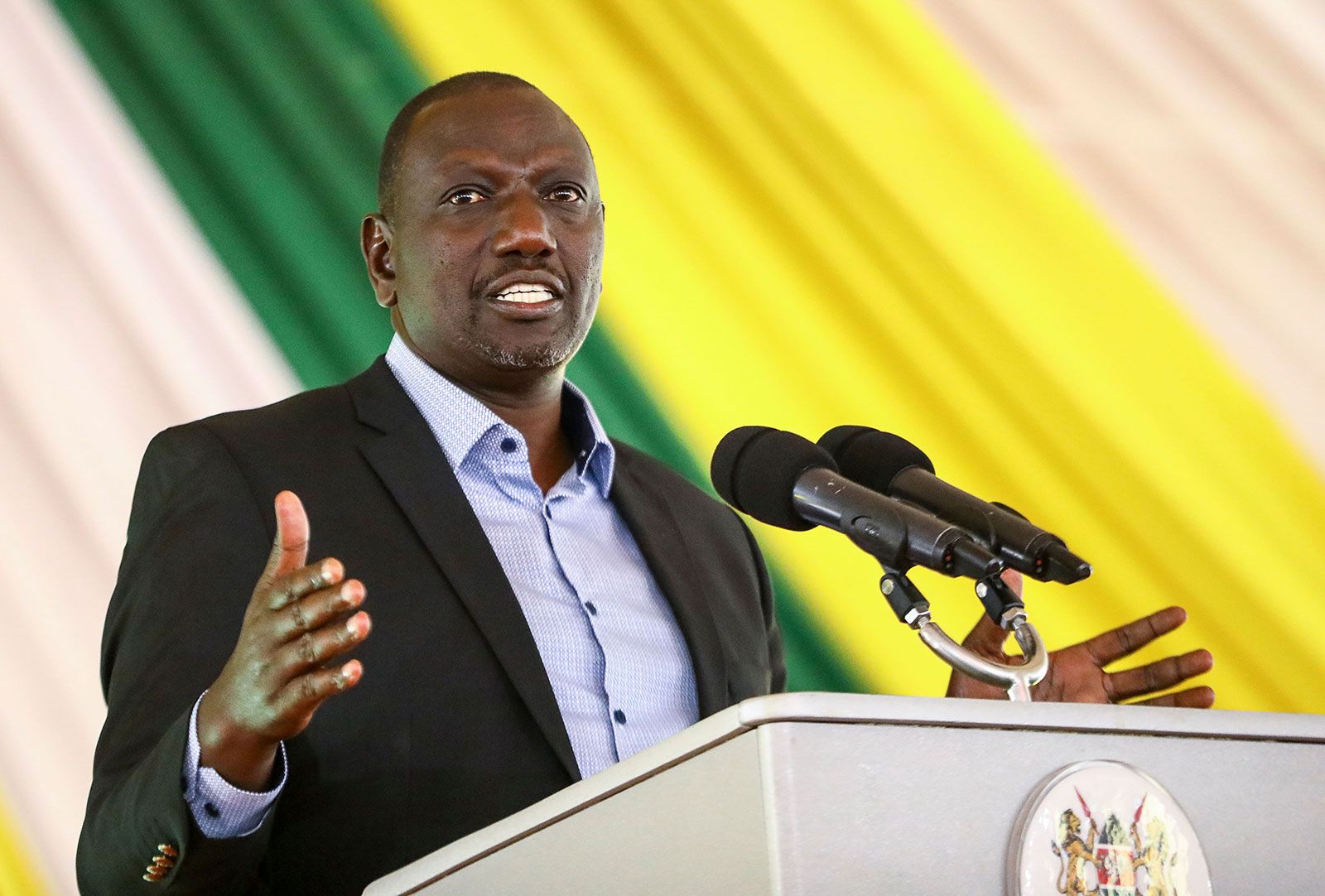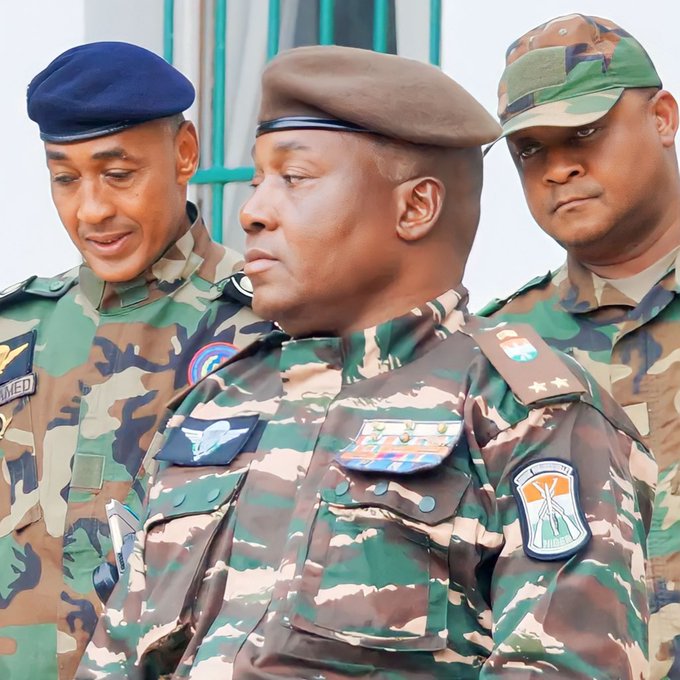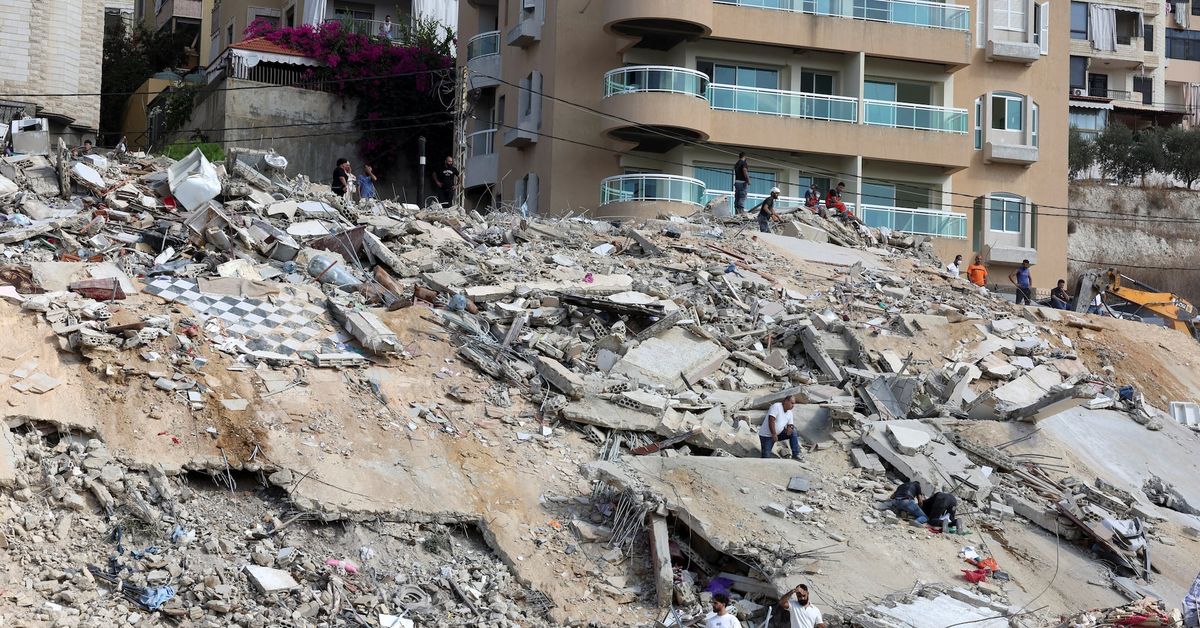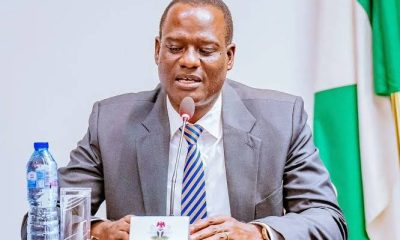Foreign News
Kenya Gears Up For Additional Protests Despite Ruto’s Policy Reversal

Kenya prepared for fresh protests amid heightened security on Thursday, following significant government concessions to revoke controversial tax hikes after violent demonstrations that included the storming of parliament.
The recent protests, predominantly led by young Kenyans, caught authorities off-guard as President William Ruto’s administration oscillated between crackdowns and calls for dialogue.
Police in riot gear blocked access to State House and parliament, while many shops remained closed due to fears of further unrest.
After initially taking a hard line, Ruto reversed course on Wednesday by refusing to sign the tax increases into law and withdrawing the bill, acknowledging public outcry.
However, protesters planned to continue their demonstrations in memory of those killed, criticizing Ruto’s reversal as too late.
Despite Ruto’s statements of engagement, protesters, including prominent activist Hanifa Adan, dismissed them as PR tactics, highlighting previous derogatory remarks towards demonstrators.
Amid international concern and calls for accountability, rights groups documented 22 deaths and hundreds injured nationwide from the recent unrest.
The government, facing fiscal challenges and pressure from international lenders like the IMF, had initially justified the tax hikes to manage Kenya’s substantial debt burden. Analysts warned of a precarious economic and political balancing act ahead for Ruto’s administration.
Credit: Core TV
Foreign News
Niger Junta Accuses Nigeria, France Of Conspiracy

….says France providing funds to Nigeria for destabilization
In a provocative statement, General Abdourahamane Tiani, the Head of State of Niger Republic, has alleged that France is providing financial support to Nigerian authorities to establish a military base in Borno State, with the purported intention of destabilizing Niger and its neighboring countries.
During a recent address, General Tiani accused France of meddling in the region and harboring ulterior motives.
“France has even offered to give money to Nigerian authorities to establish a base in Borno State, with the sole aim of destabilizing our countries,” he claimed, though he did not present any evidence to substantiate these serious allegations.
“We have informed Nigerian authorities, including Nuhu Ribado and Ahmed Abubakar Rufa’i, of a massive conspiracy to destabilize Niger.
“The Gaba Forest, located on the border between Sokoto (Nigeria) and Niger, was chosen as a base by terrorists recruited by France and ISWP.
“Unfortunately, it seems we have chosen our interlocutors badly, because it is their skills that have been exploited by France in an attempt to destabilize us on the Niger, Nigeria, Benin and Burkina Faso borders. – General Tiani, said.
This assertion marks the latest in a series of accusations directed at France by the Nigerien leader, reflecting the deteriorating relations between Niger and its former colonial power following the military coup in July 2023.
Tiani’s administration has consistently accused France of interfering in Niger’s internal affairs and supporting factions opposed to the ruling junta.
General Tiani’s allegations appear to be grounded more in speculation than substantiated fact, revealing a troubling reliance on unverified social media narratives and conspiracy theories. Such claims have circulated widely on platforms like Shehu Mahadi, which aim to sow distrust among Nigerians and incite chaos.
A closer examination of Tiani’s assertions highlights a significant misinterpretation of a video featuring the British Military Advisory Training Team (BMATT) and the UK Defence Attaché to Nigeria, Colonel Matt Lynch. In this video, Col. Lynch reaffirmed the UK’s commitment to assisting Nigeria in its fight against terrorism, particularly in the Northeast.
Importantly, the BMATT initiative is focused on training West African military personnel to counter threats such as improvised explosive devices (IEDs) and does not involve the establishment of bases or engagement in destabilizing activities.
This is not the first instance of Niger making unfounded accusations. Just last week, the Nigerien government alleged that Nigeria orchestrated the sabotage of an oil pipeline between Lido and Karakara in the Dosso region.
Despite claiming to possess “concrete evidence,” the Nigerien authorities have yet to produce any substantiating proof, leading to widespread skepticism and criticism.
These allegations seem part of a broader narrative aimed at isolating Nigeria due to its strong ties with France.
Notably, the Nigerien junta has frequently criticized France and, by extension, nations that maintain diplomatic relations with it, including Nigeria.
A senior military general recently stated that Nigeria is perceived as an enemy of Niger because of its association with France, insisting that trust cannot be established until Nigeria severs ties with its former colonial ruler.
Such continued, unfounded accusations against Nigeria pose a significant threat to diplomatic relations between the two nations.
This diplomatic misstep could exacerbate Niger’s isolation, especially as it grapples with the consequences of distancing itself from West African norms and alliances.
With over 1,400 kilometers of porous borders between Nigeria and Niger, collaboration is essential for effectively addressing cross-border terrorism and other security challenges.
As Africa’s largest economy and a regional leader, Nigeria has consistently sought to strengthen ties with Niger, offering support in counterterrorism and intelligence sharing.
The absence of a strong security presence in Niger, particularly along its borders since the coup, has exacerbated insecurity in the region, especially in areas like the Diffa Region, where towns such as Bosso and N’Guigmi have experienced insurgent activity.
Regions like Gueskerou, Kiblewa, and Tilaberi are not entirely “occupied” in a conventional sense but have become staging grounds for sporadic attacks by insurgent groups.
Nigeria has demonstrated its commitment to regional peace and security through initiatives like the Multinational Joint Task Force (MNJTF) and bilateral collaborations with Niger, Chad, and Cameroon. These efforts focus on combating terrorism and enhancing border security.
General Tiani’s accusations not only undermine these important initiatives but also risk fueling unnecessary tensions between nations that share a common goal of achieving stability and peace in the Sahel region.
Foreign News
We Are Ready For Israeli Land Invasion In Lebanon – Hezbollah

Hezbollah fighters are primed to confront any Israeli ground invasion of Lebanon, the group’s deputy leader Naim Qassem said on Monday in his first public speech since Israeli airstrikes killed its veteran chief Hassan Nasrallah last week.
Israel will not achieve its goals, he said.
“We will face any possibility and we are ready if the Israelis decide to enter by land and the resistance forces are ready for a ground engagement,” he said in an address from an undisclosed location.
He was speaking as Israeli airstrikes on targets in Beirut and elsewhere in Lebanon continued, extending a two-week long wave of attacks that has eliminated several Hezbollah commanders but also killed about 1,000 Lebanese and forced one million to flee their homes, according to the Lebanese government.
Nasrallah’s killing, along with the series of blows against the organization’s communications devices and assassination of other senior commanders, constitute the biggest blow to the organization since Iran created it in 1982 to fight Israel.
He had built it up into Lebanon’s most powerful military and political force, with wide sway across the Middle East.
Now Hezbollah faces the challenge of replacing a charismatic, towering leader who was a hero to millions of supporters because he stood up to Israel even though the West branded him a terrorist mastermind.
“We will choose a secretary-general for the party at the earliest opportunity…and we will fill the leadership and positions on a permanent basis,” Qassem said.
Qassem said Hezbollah’s fighters had continued to fire rockets as deep as 150 km (93 miles) into Israeli territory and were ready to face any possible Israeli ground incursion.
“What we are doing is the bare minimum…We know that the battle may be long,” he said.
“We will win as we won in the liberation of 2006 in the face of the Israeli enemy,” he added, referring to the last big conflict between the two foes.
Israel, which has also assassinated leaders of the Palestinian militant group Hamas in the Gaza war, says it will do whatever it takes to return its citizens to evacuated communities on its northern border safely.
It has not ruled out a ground invasion and its troops have been training for one.
“The elimination of Nasrallah is an important step, but it is not the final one. In order to ensure the return of Israel’s northern communities, we will employ all of our capabilities, and this includes you,” Israeli Defence Minister Yoav Gallant told troops deployed to the country’s northern border.
OTHER MILITANTS HIT
Hours before Hezbollah’s Qassem spoke, Hamas said an Israeli airstrike killed its leader in Lebanon, Fateh Sherif Abu el-Amin, along with his wife, son and daughter in the southern city of Tyre on Monday.
Another faction, the Popular Front for the Liberation of Palestine, said three of its leaders died in a strike in Beirut’s Kola district – the first such hit inside the city limits.
The wave of Israeli attacks on militant targets in Lebanon are part of a conflict also stretching from the Palestinian territories of Gaza and the occupied West Bank, to Yemen, Iraq and within Israel itself. The escalation has raised fears that the United States and Iran will be sucked into the conflict.
MULTIPLE FRONTS
The latest actions indicated Israel has no intention of slowing down its offensive even after eliminating Nasrallah, who was Iran’s most powerful ally in its “Axis of Resistance” against Israeli and U.S. influence in the region.
Iranian Foreign Ministry spokesperson Nasser Kanaani said Tehran would not let any of Israel’s “criminal acts” go unanswered. He was referring to the killing of Nasrallah and an Iranian Guard deputy commander, Brigadier General Abbas Nilforoushan, who died in the same strikes on Friday.
Russia said Nasrallah’s death had led to a serious destabilisation in the broader region.
A spokesperson for British Prime Minister Keir Starmer said Britain called for a ceasefire, although they added that its support for Israel’s right to self-defence was “ironclad”.
Close ally the United States has shown unwavering support for Israel despite concerns over heavy civilian casualties.
While Arab states have condemned Israel’s actions, none have taken concrete steps to pressure it to rein in its warplanes, angering Beirut residents like Abou Imad.
“You are watching as they (Israel) take over all the Arab countries and take us all. This indifference is shameful, for the Lebanese and Palestinian people,” he said.
(Reuters)
Foreign News
FG Cuts Funeral Sizes Due To Marburg Virus Outbreak

Following the outbreak of the highly contagious Marburg virus in Rwanda, the government has placed a restriction on funeral sizes for victims as part of efforts to curb the spread.
Core News gathered that eight people have reportedly died during Rwanda’s first outbreak of the virus, which was confirmed on Friday by the nation’s health ministry.
Marburg, with a fatality rate of up to 88%, is from the same virus family as Ebola. It spreads to humans from fruit bats and then through contact with bodily fluids of infected individuals.
In new guidelines to halt the spread of Marburg, the health ministry said no more than 50 people should attend the funeral of a person who died from the disease.
“Normal business and other activities” can continue in the East African country, said the advisory, published on Sunday evening.
However, it also urged the public to avoid close contact with “symptomatic individuals”.
The ministry listed symptoms such as fever, headaches, muscle aches, vomiting and diarrhoea. The virus can cause death through extreme blood loss.
The Health ministry’s guidelines said hospital patients would not be permitted visitors for the next 14 days.
Patients will also only be allowed one caregiver at a time, the guidelines said.
In numerous developing countries, patients’ loved ones perform basic care tasks – such as washing and feeding – that are typically performed by a nurse in other countries.
On Saturday, when the official death toll was six, Rwanda’s health minister said most of the victims were healthcare workers in a hospital intensive care unit.
Even though most of the reported cases have been in the capital, Kigali., the Rwandan authorities said it was intensifying contact tracing, surveillance and testing to help contain the spread.
While urging the public to practice good hygiene, such as frequent hand washing, the minister said officials were tracking about 300 people who had come into contact with individuals affected by the Marburg virus.
This is the first time Marburg has been confirmed in Rwanda. Neighbouring Tanzania reported an outbreak in 2023, while three people died in Uganda in 2017.
(BBC)
-

 News12 months ago
News12 months agoKogi Police Prohibits, Warns Against Use of Vehicles With Covered Number Plates
-

 News12 months ago
News12 months agoHow We Discovered Drugs In The Residence of Kwara Senator Accusing Us of Corruption. – NDLEA
-

 News2 years ago
News2 years agoKogi Govt. Commences Staff Audit For State Civil Servants Dec. 5th
-

 Politics2 years ago
Politics2 years agoKOGI2023: AA’s Candidate, Braimoh, Promises To Regenerate State’s Economy, Receives Decampees
-

 News2 years ago
News2 years agoPDP Will Expel Wike At Appropriate Time – Bwala
-

 News3 years ago
News3 years agoWAEC Releases 2022 WASSCE Results
-

 Solicited2 years ago
Solicited2 years agoYAHAYA BELLO: The Generalissimo!
-

 News3 years ago
News3 years agoSen. Smart Adeyemi Set To Kick-off N250M Empowerment Programs In Kogi West















